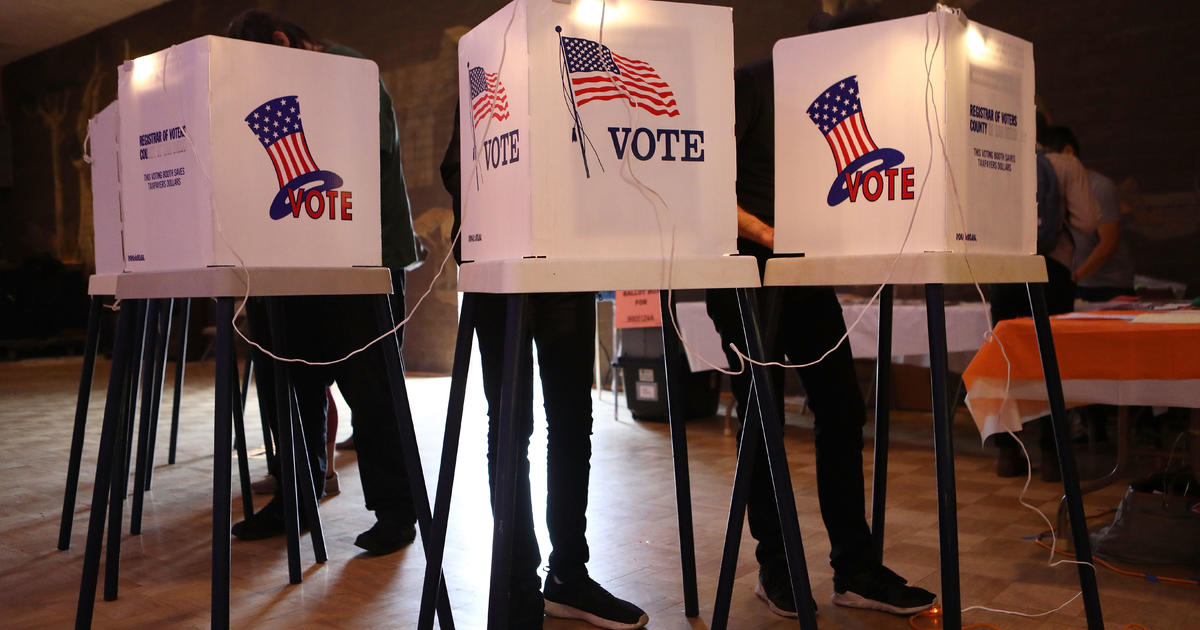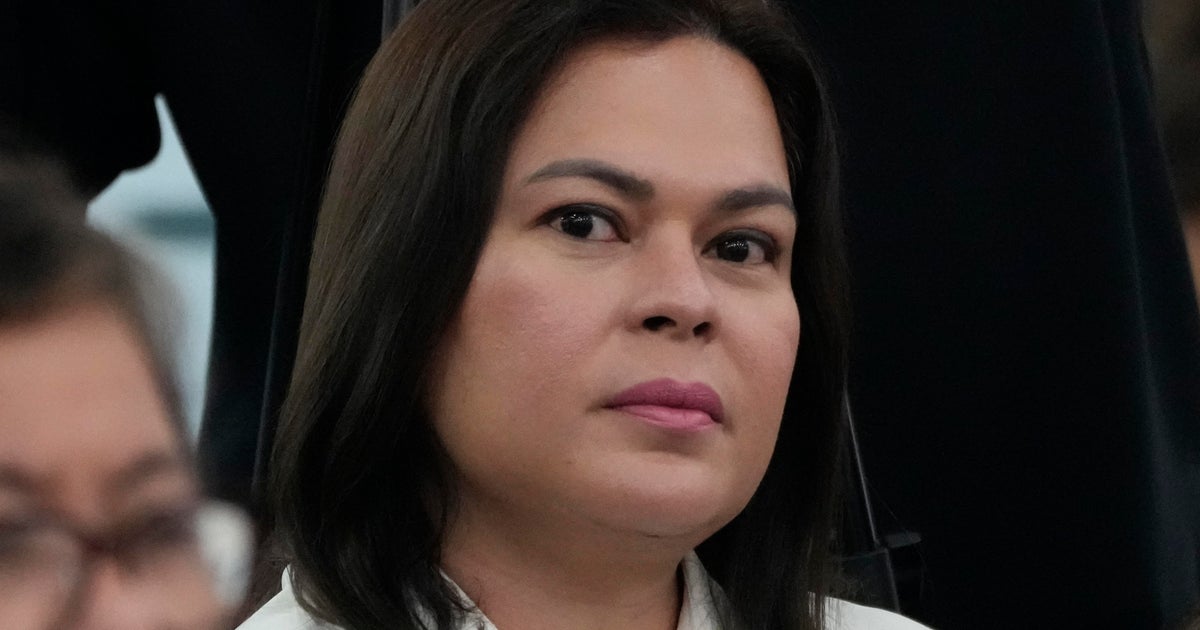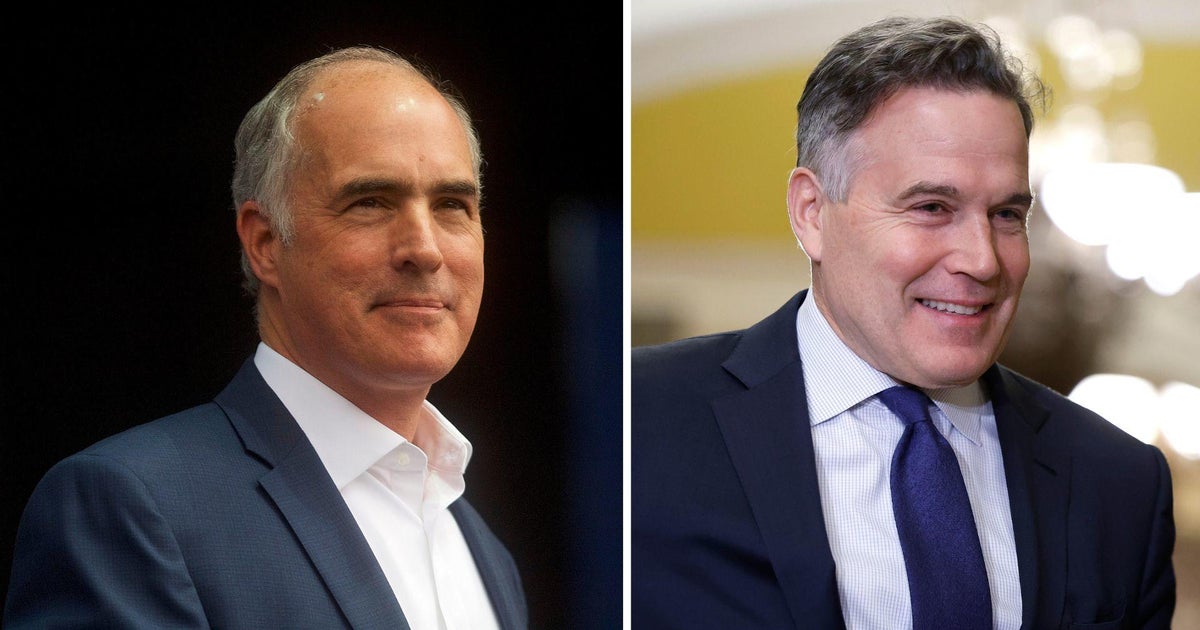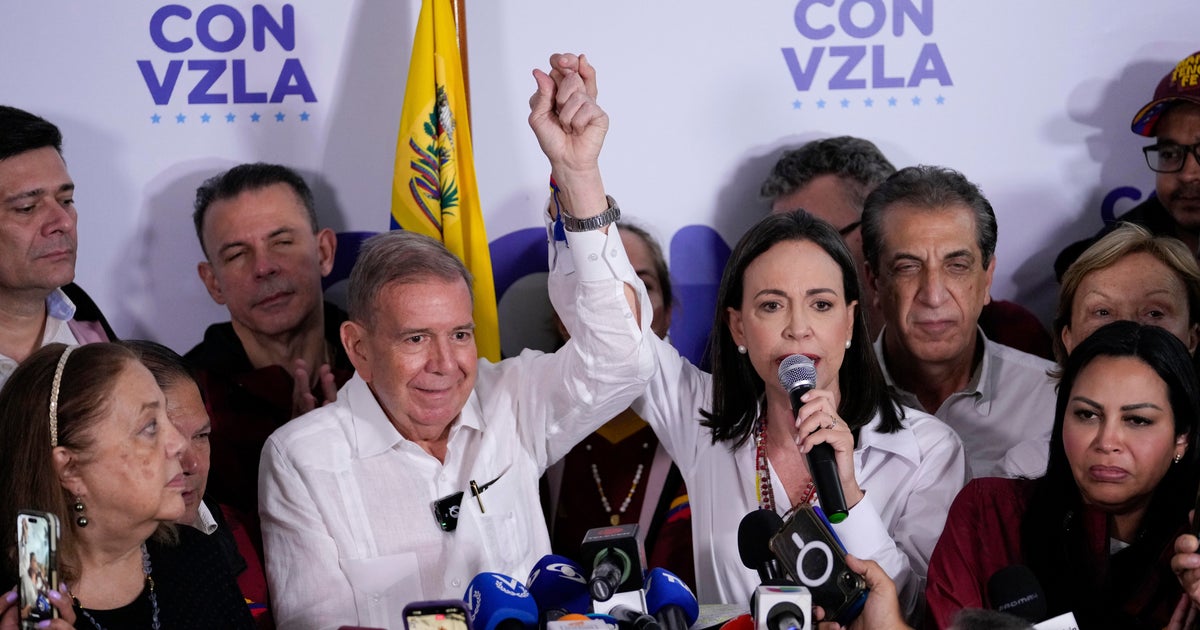CBS News
Why state secretaries of state are important to elections

John J. Martin is a research assistant professor of law at the University of Virginia.
They may be the most important government officials you can’t name. Their decisions have the potential to alter election results. Scholars have referred to them as the “guardians of the democratic process.”
Who are these unknown, but essential, officials?
State secretaries of state.
You probably know only one person with the title “secretary of state,” Antony Blinken, who conducts foreign policy for the U.S. The others serve their individual states, overseeing numerous crucial state functions. In Michigan, the secretary of state provides motor-vehicle services, such as driver’s licenses and auto registrations. In California, the secretary of state heads the public archives that document California history. And in many states, such as Pennsylvania, the secretary of state manages the process for business registration.
Perhaps the most vital role that state secretaries of state play is that of chief election official.
In 38 states, the secretary of state supervises elections. This power is not confined simply to state and local elections, as the position title might suggest, but includes those on the federal level too.
Despite their importance, secretaries of state have historically managed to avoid being the center of attention during election seasons. Times are changing, though.
Disputes over election results and ballot access have become more prominent over the past half-decade. In turn, secretaries of state have faced newfound scrutiny and are likely to become more central figures in coming elections.
Power from the Constitution
The basis for secretary of states’ comprehensive authority is found in the text of the U.S. Constitution: Article I gives states the power to regulate the “times, places, and manner” of holding congressional elections. Under Article II, the states get to choose how they pick their electors in presidential elections.
The administration of federal elections is thus largely a state affair. Secretaries of state derive their power over state and local elections from the 10th Amendment, which reserves to the states all powers not expressly delegated or prohibited by the Constitution.
This dynamic explains why the Maine secretary of state’s actions can range from keeping former President Donald Trump off the presidential primary ballot to overseeing the 2023 local elections.
It explains why controversies over election certification by Georgia’s secretary of state occurred in both the 2020 presidential election and 2018 gubernatorial election.
As the chief election official, a secretary of state’s influence over the democratic process can extend to every single elected office.
Substantial sway
The election-related powers wielded by secretaries of state naturally vary by state. There are, nevertheless, common features.
The majority of secretaries of state determine ballot eligibility for political parties and candidates. Such determinations are typically straightforward: Is the candidate old enough? Are they a natural-born citizen?
Yet, as recent events in Colorado and Maine concerning Trump’s presidential eligibility under the 14th Amendment show, such decisions have the potential to be complex and extraordinarily significant.
The majority of secretaries of state also have the job of certifying the winners of primary and general elections within their states. This is why secretaries were often named as defendants in Trump’s 2020 legal cases challenging the presidential election results.
Secretaries of state often have substantial sway over how you vote. This can include what your ballot looks like on Election Day.
For example, the Montana secretary of state, like many secretaries, has the power to “adopt statewide uniform rules” setting out, among other things, the ordering of candidates on the ballot, how to handle write-in candidates and the procedure for correcting ballots.
These decisions may seem trivial, but as the infamous 2000 election fiasco in Florida showed, ballot design can quite literally affect electoral outcomes. That ballot was ordered in a way that caused some Al Gore supporters to accidentally vote for third-party candidate Pat Buchanan. Experts have argued that this cost Gore the election.
Potential for abuse
Secretaries of state can also control how your vote is counted. In Nevada, the secretary of state can adopt regulations imposing statewide standards for vote counting.
That system gave rise to conflict in the 2022 midterms between the Nevada secretary of state and county officials, when the secretary would not permit county officials to conduct a hand count of mail-in ballots before election day.
Likewise, numerous secretaries of state have the ability to authorize the use – or nonuse – of voting equipment. Such powers were showcased in the wake of the 2020 election when many secretaries decertified voting machines that were subject to “Stop the Steal” audits by Trump supporters.
This list of powers is far from comprehensive. Indeed, some secretaries of state are granted such broad election authority that they have provoked concerns over the potential for abuse.
The Arizona secretary of state, for example, can determine the “maximum allowable wait time” at polls. Given the negative relationship between poll line length and voter turnout, such power, if misused, could effectively reduce voter participation.
The Arizona secretary of state can furthermore refuse to approve the certification of any election officer – people who help administer elections – seemingly for any reason that does not meet the secretary’s “satisfaction.”
While this authority normally would not raise red flags under a secretary of state acting in good faith, it could allow a secretary with an agenda – perhaps election denialism or favoring one candidate over another – to staff the state’s election administration regime with ideologues.
How to hold accountable?
I do not raise these examples to suggest that state secretaries of state are figures to be feared. The vast majority are, from my observations as a practitioner and scholar of election law, excellent public servants.
Nevertheless, their immense influence over the democratic process demonstrates the need for accountability measures in situations where secretaries of state abuse their power – perhaps by deliberately suppressing the vote or acting in an overly partisan manner.
The most obvious means of public accountability is elections. In most states in which the secretary of state is the chief election official, the secretary is in fact elected by the people.
In seven such states, however, the secretary of state is a political appointee of either the governor or legislature. Appointment certainly does not immunize a secretary from accountability. The barrier for removal, however, may be higher when politics enters the calculation – e.g., requiring a supermajority legislative vote for impeachment.
The drawback to this kind of accountability: lack of immediacy. If a secretary of state is actively harming the democratic process, waiting until the next election year to vote them out may not seem like the best option.
One alternative involves a lawsuit. In 2018, for instance, Georgia advocacy groups got a federal court to block then-Secretary of State Brian Kemp from tossing out absentee ballots without notifying voters.
Lawsuits are an imperfect solution. For one, voters will not always have the legal right to sue a secretary of state in every instance of wrongdoing. Furthermore, when a lawsuit is brought, the implication is often that harm has already been done.
Internal checks and balances can provide additional accountability. When a secretary of state makes an important election-related decision, that decision could be subject to the scrutiny of another official. This is how it is done in Louisiana, where the secretary of state’s decisions on issues such as absentee and early voting require the approval of the state’s attorney general.
This article is republished from The Conversation under a Creative Commons license.
CBS News
Missing rabbi killed in the UAE in “heinous antisemitic terror incident,” Israel says

Israel said Sunday that the body of an Israeli-Moldovan rabbi who went missing in the United Arab Emirates has been found after he was killed in what it described as a “heinous antisemitic terror incident.”
The statement from Prime Minister Benjamin Netanyahu’s office said Israel “will act with all means to seek justice with the criminals responsible for his death.” There was no immediate comment from the UAE.
Zvi Kogan, 28, an ultra-Orthodox rabbi who went missing on Thursday, ran a Kosher grocery store in the futuristic city of Dubai, where Israelis have flocked for commerce and tourism since the two countries forged diplomatic ties in the 2020 Abraham Accords.
Jon Gambrell / AP
The agreement has held through more than a year of soaring regional tensions unleashed by Hamas’ Oct. 7, 2023 attack into southern Israel. But Israel’s devastating retaliatory offensive in Gaza and its invasion of Lebanon, after months of fighting with the Hezbollah militant group, have stoked anger among Emiratis, Arab nationals and others living in the UAE.
Iran, which supports Hamas and Hezbollah, has also been threatening to retaliate against Israel after a wave of airstrikes Israel carried out in October in response to an Iranian ballistic missile attack.
The Emirati government did not respond to a request for comment.
Early Sunday, the UAE’s state-run WAM news agency acknowledged Kogan’s disappearance but pointedly did not acknowledge he held Israeli citizenship, referring to him only as being Moldovan. The Emirati Interior Ministry described Kogan as being “missing and out of contact.”
“Specialized authorities immediately began search and investigation operations upon receiving the report,” the Interior Ministry said.
Netanyahu told a regular Cabinet meeting later Sunday that he was “deeply shocked” by Kogan’s disappearance and death. He said he appreciated the cooperation of the UAE in the investigation and said that ties between the two countries would continue to be strengthened.
Israel’s largely ceremonial president, Isaac Herzog, condemned the killing and thanked Emirati authorities for “their swift action.” He said he trusts they “will work tirelessly to bring the perpetrators to justice.”
Kogan was an emissary of the Chabad Lubavitch movement, a prominent and highly observant branch of ultra-Orthodox Judaism based in Brooklyn’s Crown Heights neighborhood in New York City. It said he was last seen in Dubai. The UAE has a burgeoning Jewish community, with synagogues and businesses catering to kosher diners.
The Rimon Market, a Kosher grocery store that Kogan managed on Dubai’s busy Al Wasl Road, was shut down Sunday. As the wars have roiled the region, the store has been the target of online protests by supporters of the Palestinians. Mezuzahs on the front and the back doors of the market appeared to have been ripped off when an Associated Press journalist stopped by on Sunday.
Kogan’s wife, Rivky, is a U.S. citizen who lived with him in the UAE. She is the niece of Rabbi Gavriel Holtzberg, who was killed in the 2008 Mumbai attacks.
The UAE is an autocratic federation of seven sheikhdoms on the Arabian Peninsula and is also home to Abu Dhabi. Local Jewish officials in the UAE declined to comment.
While the Israeli statement did not mention Iran, Iranian intelligence services have carried out past kidnappings in the UAE.
Western officials believe Iran runs intelligence operations in the UAE and keeps tabs on the hundreds of thousands of Iranians living across the country.
Iran is suspected of kidnapping and later killing British Iranian national Abbas Yazdi in Dubai in 2013, though Tehran has denied involvement. Iran also kidnapped Iranian German national Jamshid Sharmahd in 2020 from Dubai, taking him back to Tehran, where he was executed in October.
CBS News
Hyundai, Kia recall more than 208,000 electric vehicles over power loss issue

Hyundai and Kia are recalling more than 208,000 electric vehicles to fix a problem that can cause the loss of drive power, increasing the risk of a crash.
The recall covers more than 145,000 Hyundai and Genesis including some IONIQ 5 and IONIQ 6 EVs along with Genesis GV60, Genesis GV70 and Genesis G80 models.
The National Highway Traffic Safety Administration (NHTSA) said the vehicles’ transistors in a charging control unit may get damaged and stop charging the 12-volt battery, “which can result in a loss of drive power.”
In the Kia recall, nearly 63,000 EV6 vehicles from 2022 through 2024 are impacted.
Car dealers will inspect and replace the control unit and a fuse if needed, as well as update software. Owners whose vehicles were recalled earlier this year to fix the same problem will have to visit their dealer again.
Owners will be notified by letter in December and January.
CBS News
Here Comes the Sun: Jack Antonoff and more

Watch CBS News
Be the first to know
Get browser notifications for breaking news, live events, and exclusive reporting.








